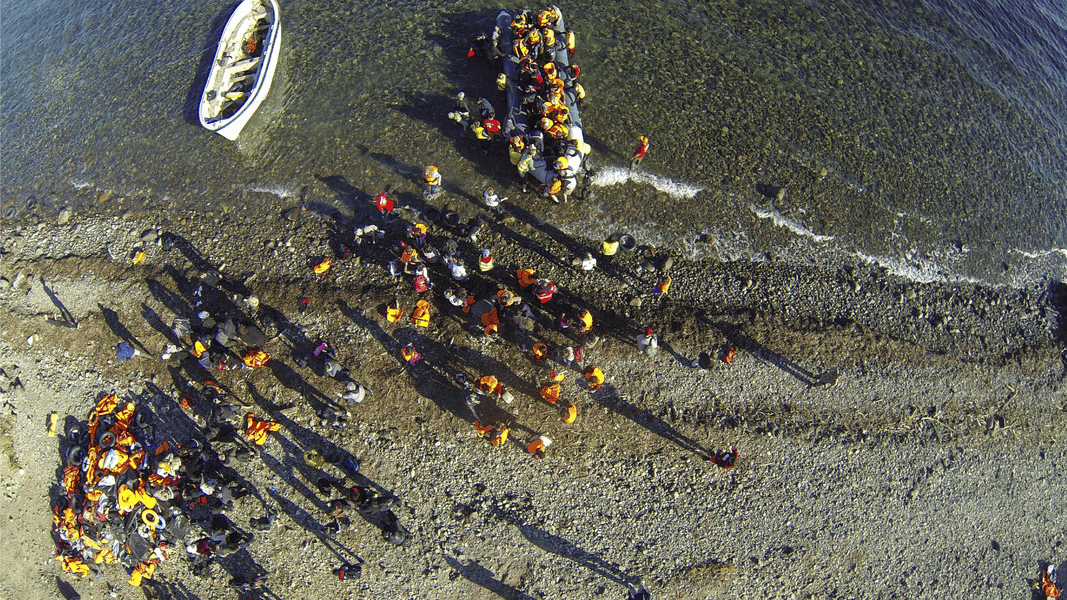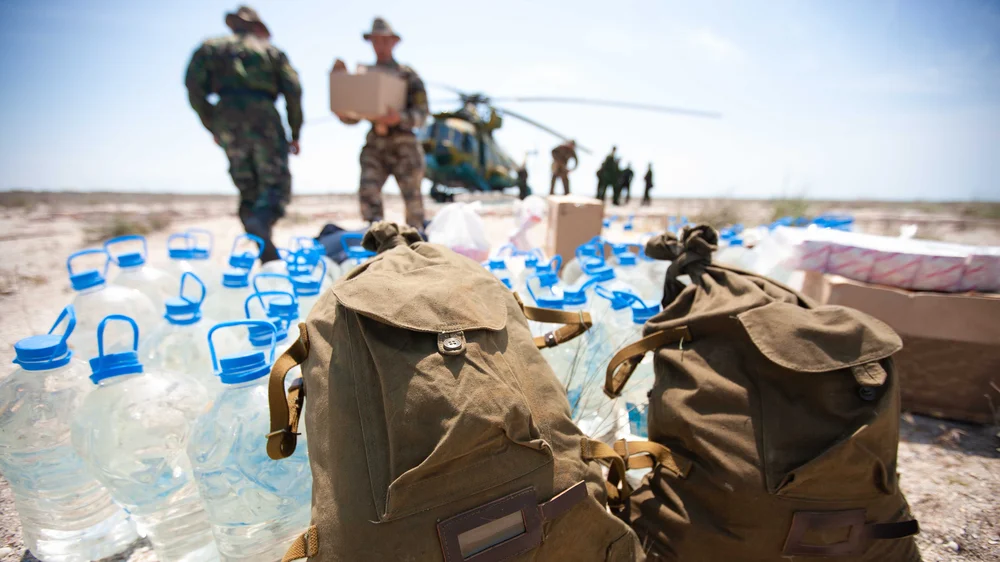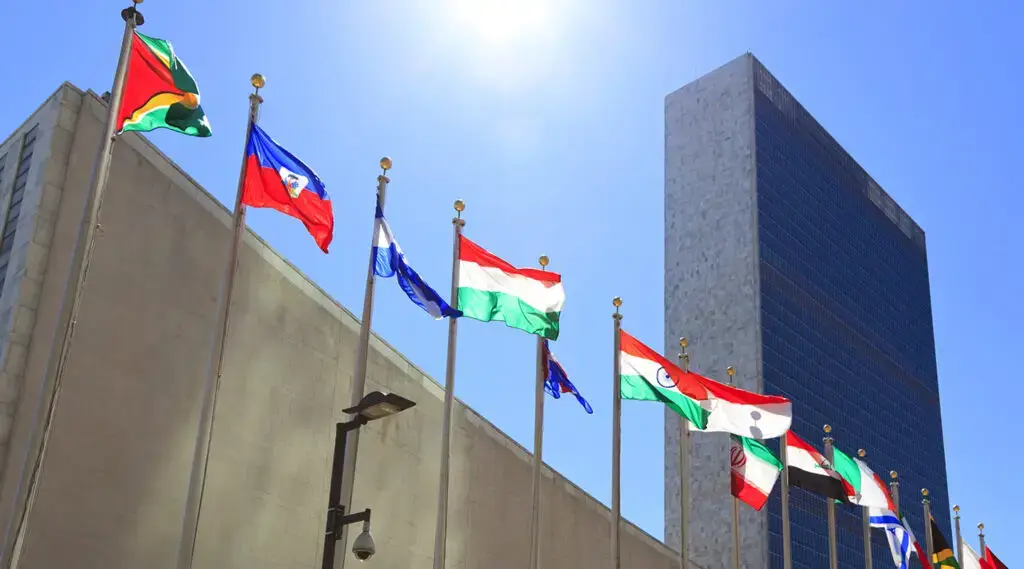The International Organization for Migration (IOM) works to help ensure the orderly and humane management of migration to promote international cooperation on migration issues; to assist in the search for practical solutions to migration problems; and to provide humanitarian assistance to migrants
- Has 175 member states, 8 states holding observer status and offices in 171 countries
- Launched the Missing Migrants Project in 2014 to document deaths and disappearances of people in the process of migration towards an international destination
In 2014, the International Organization for Migration (IOM) established the Missing Migrants Project to document incidents in which migrants, including refugees and asylum seekers, have died or disappeared at country borders or in the process of migrating to an international destination. The Project has recorded more than 60,000 deaths on migration routes worldwide since its inception, though figures remain undercounted due to data collection challenges.
We spoke with Julia Black, Project Officer, and Andrea García-Borja, Data Analyst at IOM’s Global Migration Data Analysis Center, to understand how First Alert, Dataminr’s product for the public sector, became a crucial tool in helping their team gather data on migrant deaths and disappearances worldwide, more easily and effectively.
How First Alert improves workflow efficiency
Prior to using First Alert, the Project team relied on other alerting and media monitoring tools to document deaths and disappearances along migratory routes. However, these sources were costly, not always accurate or relevant, and sifting through them was labor-intensive. Black and García-Borja knew they needed a solution that would be more sustainable and effective in providing them with the right information.
After six months of implementing First Alert into their workflow, Black and García-Borja did a formal comparison and saw that it was outperforming their other tools. In particular, when compared to the other tools the team was using, First Alert helps Black and García-Borja significantly reduce the time needed to go through the data they receive on a daily basis.
“We did an analysis to see which tool captured the most data, as well as the most relevant data. It was Dataminr,” said Black. “It showed that First Alert was the best solution for our work.”
García-Borja added, “The other tools showed one result for each article, so sometimes we would get hundreds of search results on the same thing. On the other hand, First Alert gathers all the information related to an incident and puts it under one theme or topic, which has been super helpful in making our process more efficient.”
First Alert’s real-time, breaking news alerts also enable the IOM team to now detect incidents of migrant deaths and disappearances early on and much faster, allowing it to start the investigation and verification process of each case more quickly than in the past.
“We often spend a long time—several days to a week—trying to track down information to verify incidents,” said García-Borja. “Having access to real-time information through First Alert and the ability to track a news story does a lot of our work for us.”

The Value of Real-time Information for the Public Sector
Learn how and why real-time information is critical in enabling public sector organizations to serve their communities during crises and high-impact events.
READ MOREUsing First Alert to detect shipwrecks worldwide
One of the key types of incidents on the Project team’s watchlist is migrant shipwrecks, which continue to occur globally. According to a recent UN release, in the Mediterranean Sea alone, more than 2,500 migrants died or went missing while trying to get to Europe in 2023.
In November, First Alert alerted Black to a shipwreck off the coast of Senegal. As First Alert delivers real-time alerts based on information translated from over 100 languages, she was able to understand the information—which was from an article in Wolof, a local Senegalese language—and immediately inform the Project’s West and Central Africa office of the incident. The IOM West and Central Africa team was then able to contact local authorities and confirm that there was a search and rescue effort happening.
“Because First Alert pointed us to this very isolated, hyper-local article, we were able to investigate and verify this incident, which we otherwise probably would’ve missed,” said Black. “We’re still looking into the exact number, but it could be over 100 missing people that we wouldn’t have known about, if it weren’t for First Alert.”
She also clarified that First Alert proves highly valuable to the Project’s work because authorities don’t always proactively notify IOM unless it reaches out first.
Additionally, as First Alert generates alerts from over a million publicly available data sources, the team can stay abreast of all relevant news posted on social media by local authorities, such as the U.S. Coast Guard.
“When the U.S. Coast Guard knows about a shipwreck, it often launches a search and rescue operation and shares periodic updates on its social media. Those updates are always picked up by First Alert,” said García-Borja. “So instead of having to go to X and search for the U.S. Coast Guard’s page, I can easily see all the developments in First Alert and document an incident.”
Beyond enabling the Project team to effectively identify cases of missing migrants, First Alert has also helped improve other aspects of the employees’ work.
“First Alert has been really impactful for me because investigating migrant deaths everyday is hard on our mental health,” said Black. “By having a tool that’s easy to work with and allows me to reduce the time manually going through dozens of articles a day, I’ve found my work to be more sustainable.”
“And because we don’t need to spend a lot of time looking for information, we can allocate our resources and manpower to finding more informants, extending our networks on the ground, and more,” said García-Borja.
For more information on the Missing Migrants Project and the impact of their work, visit here.
Discover First Alert
Real-time alerts enable public sector agencies and organizations to support humanitarian efforts around the world.
LEARN MORE




